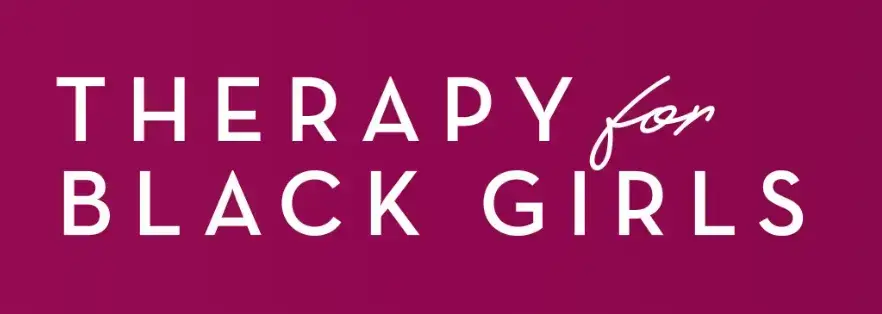5 Effective Ways Grief Therapy Facilitates Healing
Leave Your Info
Follow Us on Social 😊🧠
Grief therapy offers a supportive and understanding space to navigate this journey. Grief is a journey that’s as unique as the individual experiencing it. Here, we explore five significant ways grief therapy can aid in the healing process.
Grief can feel like an overwhelming, confusing, and sometimes lonely experience. It’s a natural response to loss, but knowing this doesn’t always make it easier to handle. That’s where grief therapy comes in. It’s more than just a space to talk; it’s a place where healing begins. This blog takes an honest look at grief therapy and its benefits, especially when you’re struggling to find your footing after a loss.
Understanding Grief
First things first, let’s talk about grief. It’s not just feeling sad because you’ve lost someone or something important. Grief can affect your emotions, thoughts, body, and even your sense of identity. It’s a personal and individual experience, and there’s no right or wrong way to grieve. What’s important is recognizing that it’s a process, one that can be unpredictable and challenging.
The Role of Grief Therapy
Grief therapy isn’t about giving you a set of instructions on how to grieve. Instead, it provides a supportive environment where you can explore your feelings, thoughts, and memories at your own pace. It’s a place where you can be honest about your feelings without fear of judgment, and where you can start to find ways to cope with the loss

5Ways Grief Therapy Aids Healing
Helps in Understanding Your Grief
Therapists can help you understand your unique grief process. They can offer insights and coping strategies that are tailored to your needs.
Provides a Safe Space
Grief therapy offers a confidential and safe environment to express your feelings. It’s a space where you can let down your guard and be vulnerable, which is crucial for healing.
Supports in Processing Emotions
It’s common to experience a range of emotions during grief. Therapy can help you recognize and process these emotions, rather than bottling them up.
Provides Tools to Move Forward
Therapy equips you with tools and techniques to manage grief in daily life, helping you to gradually move forward at your own pace.
Aids in Finding New Meaning
Grief can make your world feel like it’s turned upside down. Therapy can assist you in finding new meaning and purpose in life after your loss.
closing thoughts on coping with grief
Grief therapy is a powerful ally in the journey of healing from loss. It offers understanding, support, and practical tools to help you navigate through your grief. Remember, seeking help is a sign of strength, not weakness. If you’re struggling with grief, consider reaching out to a grief therapist. It could be the first step towards finding a new sense of balance and peace in your life.
If you or someone you know is struggling with grief, reach out to our grief counselors for support.
Leave Your Info
FAQ's About Therapy in New Jersey
Where are you located? I need a therapist near me
We are fully online, which means that your therapy sessions will be help via video call on our HIPAA compliant Platform. Anyone in New Jersey can access our therapy services
How do I get started as a new client?
New Clients can reach out to us directly via call, text or email here:
Does my insurance cover my visits?
We provide”Courtesy Billing” for clients who are using the Out-of-network insurance benefits.
Our Insurance Page shares a small blurb about Why We Left Insurance Panels
What are out-of-network benefits?
When using OON benefits, patients typically pay the full cost of the treatment upfront and then file a claim with their insurance company for reimbursement. The amount of reimbursement can vary depending on the plan, but it can sometimes be as high as 90%. Call your insurance to see if you have OON benefits or click here to call us and we can check for you!
Is Online Therapy As Effective As In-Person Therapy?
Online therapy is essentially face-to-face counseling, just conducted remotely. Studies show that tele-therapy is as effective as traditional counseling. Professional organizations and state governments recognize its benefits and have set regulations for it. However, like any therapy, its success in achieving your goals isn’t guaranteed. It’s important to discuss with your therapist whether tele-therapy is working for you.
How Should I Prepare for My First Session?
Showing up is all that you need to do! But if you really want to get the most out of session, it could help to take some time to think about what you want from therapy. It helps to write down your goals, questions you have or things that you feel are important to share.
Do you offer traditional talk therapy?
of course! though we have some unconventional therapy approaches, we are rooted in evidenced based practices. Talk therapy is a major player in the therapy room! See What we Treat and Integrative Services for more information
Is Virtual Counseling Suitable for Everyone?
Online therapy might not be as effective for individuals with chronic suicidal thoughts, severe trauma, significant mental health history, or those recently in intensive care. Such cases often benefit more from traditional, in-person counseling. We’ll help you decide if our online services are right for you during your intake and evaluation.
Can I Change Therapists If I'm Not Happy?
Yes, you can switch therapists to another provider within the practice, or we can provide you a referral if preferred. We want to ensure that your time and effort are well spent, and that you are getting the relief you need, that’s why we work collaboratively with each other in the practice, as well as outside therapists who we know and trust.
How Do I Know If Therapy Is Helping?
You should feel like you’re making progress. Signs it’s working include:
- Feeling comfortable talking to your therapist
- Your therapist respects boundaries
- You’re moving towards your goals
- You feel listened to
You’re doing better in life - Your self-esteem is getting better
What is your cancellation policy?
We ask that clients provide at least 24 hours notice in the event that they need to cancel to avoid the 50% cancellation fee. we understand that life happens and do our best to be flexible & reschedule.
What Geographic Areas Are Served?
Currently, we serve clients in New Jersey and are expanding to other states as telehealth laws evolve. While telehealth offers the convenience of attending sessions from anywhere, state laws require clients to be in-state during their session.
Is Online Therapy Easy to Use for Non-Tech-Savvy People?
Yes, it’s pretty simple to access sessions. You’ll need basic internet skills, such as opening and visiting the patient link sent to you via email. It’s similar to video chatting like Facetime or Zoom. We can also walk you through it on the phone the first time to ensure a strong connection
What Questions Should I Ask My New Therapist?
Feel free to ask anything. Some good questions are:
- How often will we meet?
- What do you specialize in?
- What experience do you have with my issue?
- What outcomes can I expect?
- How will I know I’m progressing?
- How long do you usually work with clients?
- How will we set my treatment goals?
What is the difference between associate therapists & fully licensed therapists?
Our Qualifications:
Our founder, Rebecca Sidoti, is a highly qualified, state-licensed therapist and supervisor with extensive training in anxiety related disorders and innovative treatment such as Ketamine Therapy. Mind by Design Counseling adheres to standards set by the our governing counseling boards.
To see each providers credentials, training and licenses, visit our “Meet the Therapists” Page to learn more.
- LAC/LSW are therapists who may practice clinical work under the supervision of a fully licensed therapist.
- LPC/LCSW are therapists who have completed the necessary clinical hours post-graduation under supervision and can practice clinical work independently.














